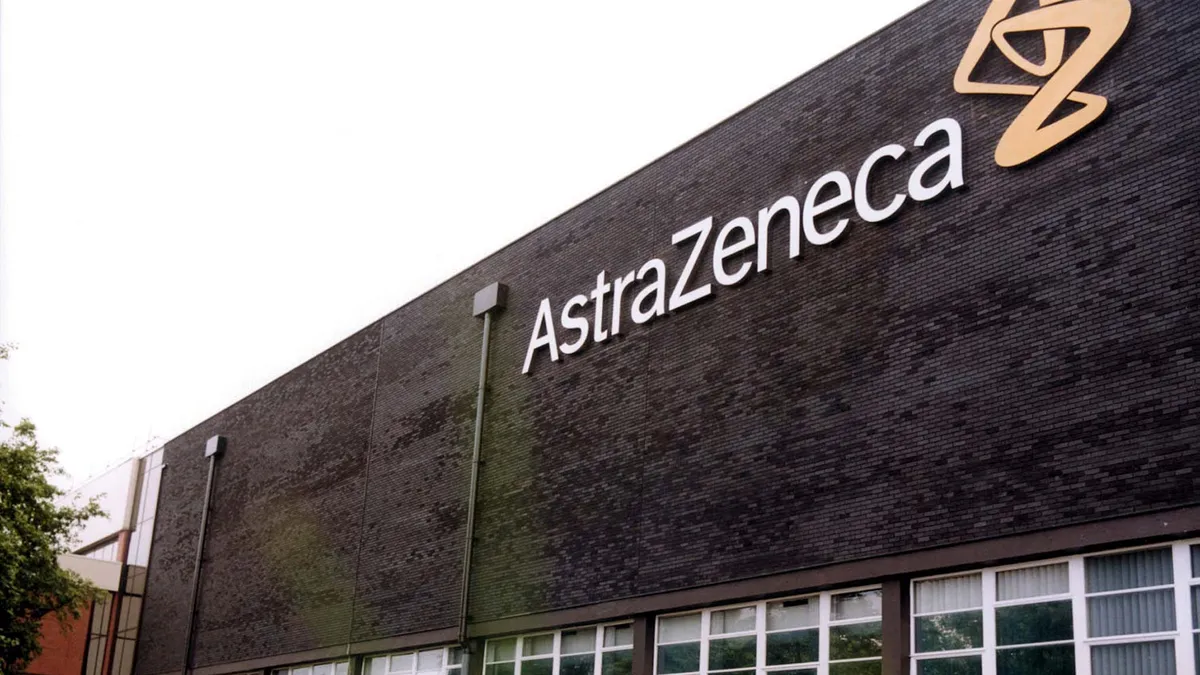Dive Brief:
- Pharmaceutical giant AstraZeneca expects a no-deal Brexit to impact its operations and has begun taking steps to deal with the potential blow, the company's CFO Marc Dunoyer said on an earnings call last week.
- The company is making changes to packaging, getting the necessary licenses, duplicating testing in the U.K. and EU and lobbying the EU to accept U.K. testing standards for drug makers, according to a slide deck from the earning's call.
- "To safeguard, against shorter-term friction at borders, we have moved stock from the U.K. to European distribution center to be as close as possible to customer on Brexit day and built an additional six weeks of stock for U.K. supply, in line with the government request and four weeks extra stock for EU supply," Dunoyer said.
Dive Insight:
AstraZeneca is "working to ensure suppliers are prepared" and is also looking at alternative transportation routes. "I want to assure you that although it will only have a limited impact on AstraZeneca, we have prepared carefully for Brexit to ensure that no patient loses access to our medicine," Dunoyer said.
AstraZeneca is far from the only company making preparations for Brexit, with the deadline for the government to make a deal quickly approaching. A "no-deal" Brexit will happen on March 29, 2019, if no withdrawal treaty is signed, meaning EU rules and regulations will cease to apply to the U.K.
This has led to record levels of stockpiling as companies try to move as many goods across the borders as possible before trade between the U.K. and EU becomes more complicated. IHS Markit said the run-up to Brexit resulted in the "sharpest" increase in inventory during the 27 years it has been tracking the U.K. manufacturing sector. The drug maker Novo Nordisk also decided to stockpile up to 18 weeks of insulin by March.
But recently, there have been slight signs of hope for Brexit-watchers. The U.K. government said it will introduce a simplified customs process for importers in the case of a no-deal Brexit that would allow qualified businesses to delay the payment of import duties and forego a full customs declaration at the border.
The European Commission also plans to look into any necessary changes in its customs process in the event of a no-deal Brexit, according to an announcement this week. The commission wants to ensure that goods continue to flow between the U.K. and the EU, according to Pierre Moscovici, the European commissioner for economic and financial affairs, taxation and customs.
"This is key to protecting our consumers and our internal market," Moscovici said in a statement. "A lot depends on the ability of businesses trading with the UK to get up to speed with the customs rules that will apply on day one in case of no deal."














